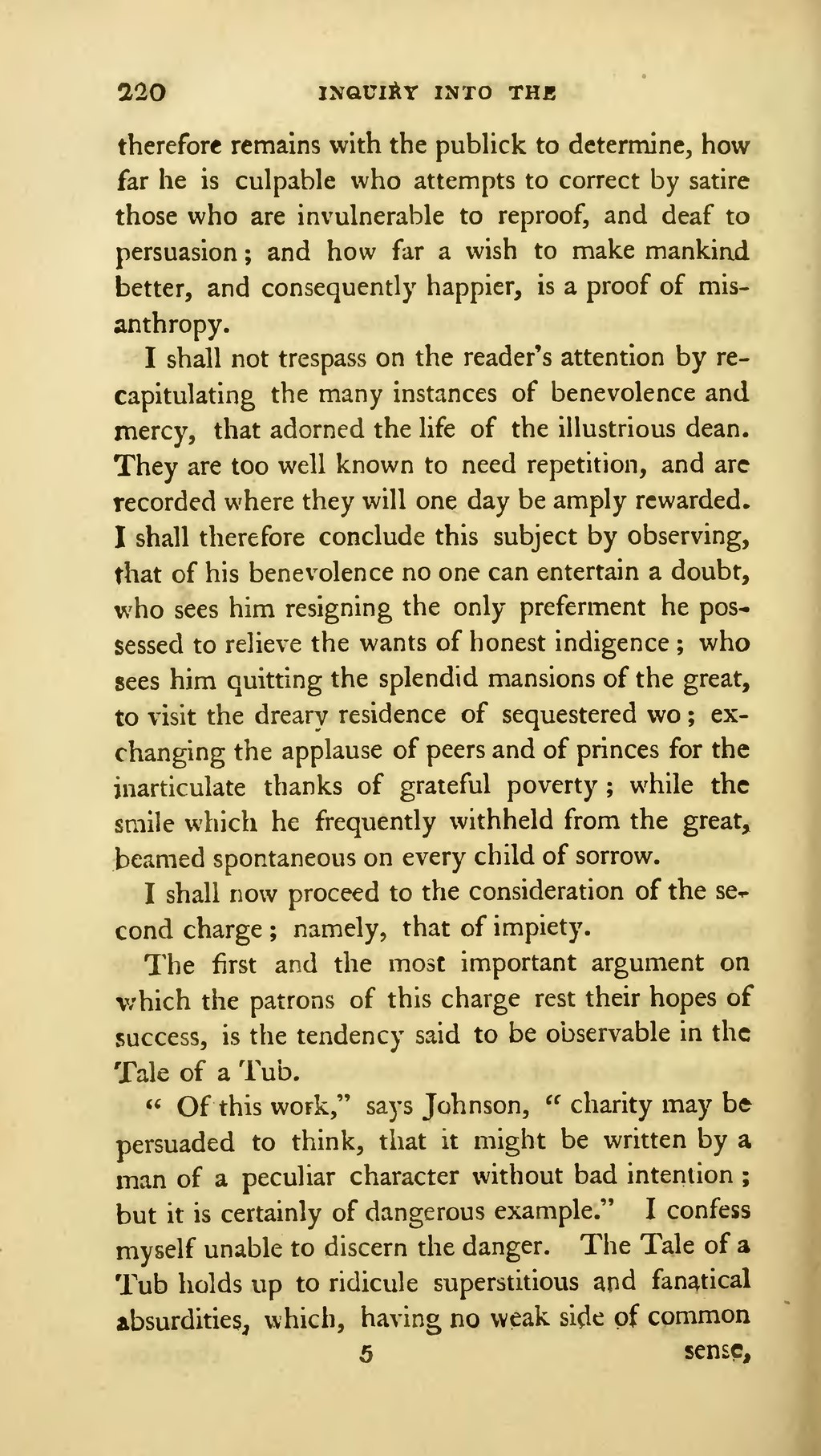therefore remains with the publick to determine, how far he is culpable who attempts to correct by satire those who are invulnerable to reproof, and deaf to persuasion; and how far a wish to make mankind better, and consequently happier, is a proof of misanthropy.
I shall not trespass on the reader's attention by recapitulating the many instances of benevolence and mercy, that adorned the life of the illustrious dean. They are too well known to need repetition, and arc recorded where they will one day be amply rewarded. I shall therefore conclude this subject by observing, that of his benevolence no one can entertain a doubt, who sees him resigning the only preferment he possessed to relieve the wants of honest indigence; who sees him quitting the splendid mansions of the great, to visit the dreary residence of sequestered wo; exchanging the applause of peers and of princes for the inarticulate thanks of grateful poverty; while the smile which he frequently withheld from the great, beamed spontaneous on every child of sorrow.
I shall now proceed to the consideration of the second charge; namely, that of impiety.
The first and the most important argument on which the patrons of this charge rest their hopes of success, is the tendency said to be observable in the Tale of a Tub.
"Of this work," says Johnson, "charity may be persuaded to think, that it might be written by a man of a peculiar character without bad intention; but it is certainly of dangerous example." I confess myself unable to discern the danger. The Tale of a Tub holds up to ridicule superstitious and fanatical absurdities, which, having no weak side of common
